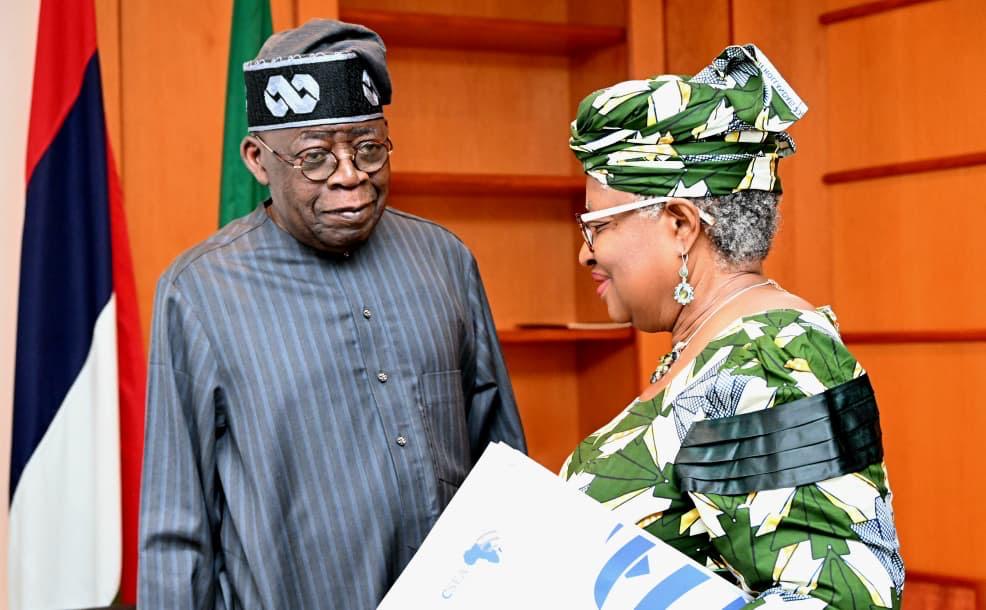Dust over Okonjo-Iweala’s upbeat economy rating

Director-General of the World Trade Organisation, WTO, Nigeria’s Ngozi Okonjo-Iweala, paid a working visit to President Bola Tinubu last week. A highlight of the meeting was her positive comment on the performance of the Nigerian economy under the president who has just completed 26 months in the saddle.
According to her, while speaking to media: “We think that the President and his team…have worked hard to stabilise the economy. And you cannot really improve on the economy unless it is unstable. Tinubu has to be given the credit for the stability in the economy. So, the reforms have been in the right direction. What is needed next is growth”.
This comment elicited mixed feelings in the public. While government officials and supporters glowed under the praise, many social media commentators expressed disappointment with Okonjo-Iweala for patting the president on the back while ignoring the unyielding hardship that the regime’s reforms continue to impose on the generality of the people.
We need to be mindful that as the head of the United Nations organ that promotes free and fair trade, Okonjo-Iweala visited as a diplomat, not politician. Even if she felt that the economy was doing badly, she would still find nice ways of saying so. Secondly, as the WTO DG, she remains an agent of the West-controlled international financial system which her former employer – the World Bank, WB, and its peer, the International Monetary Fund, IMF – drive.
Tinubu’s economic blueprint is a wholesale copy of the economic agenda strongly pushed on him by the IMF and World Bank. They have in turn readily provided the lending Tinubu has sought to drive his reforms. Okonjo-Iweala’s comment reflects the assessments already proffered by the two Bretton Woods institutions, though they’ve been critical of him in aspects of implementation.
The claim that the economy under Tinubu has achieved some measure of stability is arguably true. The Muhammadu Buhari regime left the economy in the gutters. The stability occasioned by Tinubu’s reforms are visible in the Naira’s exchange rate to the US Dollar, steady rise in foreign exchange inflows, tax and Customs revenues. The restoration of domestic refining of petroleum and steady increase in crude oil output are also great boosters.
However, the trickle-down effect is very poor. “Stability” means nothing to the masses bearing the burdens of the reforms. While the people suffer, our political leaders live large. They refuse to share the burden. There is no guarantee that if the “growth” that Okonjo-Iweala referred to comes, it will benefit the people. The Tinubu regime’s attempts at cushioning the effects of the reforms have largely failed.
This is the area the government must work harder on, in addition to toning down on the lavish lifestyle of principal political officeholders.
Economic benefits must be people-centred.
The post Dust over Okonjo-Iweala’s upbeat economy rating appeared first on Vanguard News.







